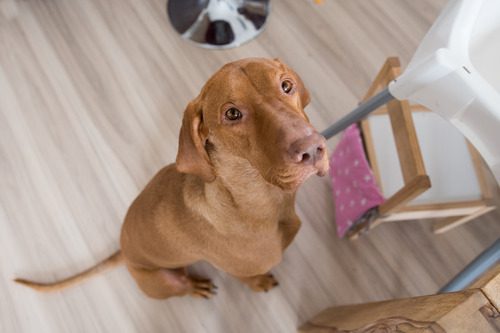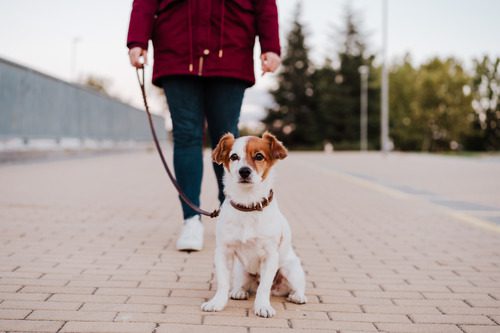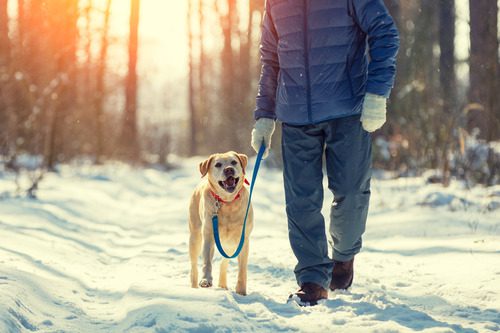8 Toxic Foods for Dogs
Dogs are curious eaters, and while their adventurous spirit is endearing, it can sometimes lead to dangerous encounters with toxic foods. As a pet owner, you’ll want to know what foods can harm your dog to maintain their safety. This blog explores eight common toxic foods for dogs, providing helpful insights into why they’re harmful and what to do if your pet ingests them. If you’re ever in doubt about something your dog has eaten, reach out to your veterinarian at The Village Vets – Plymouth Meeting by calling (484) 820-1700 or scheduling an appointment online.

Chocolate
Chocolate is perhaps one of the most well-known toxic foods for dogs, but many pet owners underestimate just how harmful it can be. Chocolate contains theobromine, a substance that dogs metabolize much more slowly than humans. The darker and more bitter the chocolate, the more theobromine it contains, making it even more dangerous. Symptoms of chocolate toxicity include vomiting, diarrhea, rapid heart rate, and in severe cases, seizures or death.
What to Do if Your Dog Eats Chocolate
If your dog consumes chocolate, contact The Village Vets – Plymouth Meeting or your nearest emergency vet immediately. The level of toxicity depends on the amount and type of chocolate ingested. While some small amounts of milk chocolate might only cause mild stomach upset, larger amounts or ingestion of dark chocolate can be life-threatening. Calling your vet as soon as possible can prevent serious complications.
Grapes and Raisins
Though they may seem like a harmless snack, grapes and raisins are extremely toxic for dogs. Even a small amount can cause severe kidney damage. The exact substance in grapes and raisins that causes toxicity is still unknown, but the effects are well-documented. Signs of poisoning include vomiting, lethargy, and decreased appetite. Kidney failure can occur rapidly, making this a true medical emergency.
Grapes and Raisins: Symptoms to Watch For
If your dog consumes grapes or raisins, keep a close eye out for symptoms like vomiting, abdominal pain, or changes in urination. Contact your veterinarian immediately if you suspect they’ve ingested these fruits, as prompt treatment can make a significant difference in preventing kidney damage.
Onions and Garlic: Toxic Alliums
Onions, garlic, and other members of the allium family (such as leeks and chives) are harmful to dogs because they contain compounds that can damage red blood cells. Over time, this can lead to hemolytic anemia, a condition where red blood cells are destroyed faster than the body can replace them. Both raw and cooked forms of these vegetables are toxic, and symptoms can appear days after ingestion.
Recognizing Onion and Garlic Poisoning
Dogs who have consumed onions or garlic may exhibit weakness, breathlessness, and an increased heart rate. In severe cases, dogs can become lethargic or collapse. If you notice any unusual behavior or physical symptoms after your dog has eaten onions or garlic, seek veterinary help right away.
Xylitol: The Hidden Danger in Sweets
Xylitol is a common sugar substitute found in many sugar-free candies, gum, and even some peanut butter brands. While it’s safe for humans, xylitol is extremely toxic to dogs. When ingested, it can cause a rapid release of insulin, leading to a dangerous drop in blood sugar levels (hypoglycemia). Symptoms of xylitol poisoning include vomiting, loss of coordination, and seizures. In severe cases, it can lead to liver failure and death.
Macadamia Nuts
Macadamia nuts may be a delicious snack for humans, but they are highly toxic to dogs. Even a small amount can cause serious side effects, such as vomiting, tremors, hyperthermia, and difficulty walking. While the exact cause of macadamia nut toxicity in dogs is unclear, the symptoms can be severe, although fatalities are rare.
Symptoms of Macadamia Nut Ingestion
If your dog eats macadamia nuts, you might notice symptoms like weakness, vomiting, or tremors within 12 hours. In most cases, these symptoms are temporary, but it’s always best to contact your vet for guidance on how to proceed.
Alcohol
While it may seem obvious to avoid giving your dog alcohol, it’s important to understand just how little it takes to cause serious harm. Dogs are much more sensitive to alcohol than humans, and even small amounts can lead to ethanol poisoning. Common symptoms include vomiting, disorientation, slowed breathing, and in severe cases, coma or death.
Sources of Alcohol Exposure
Alcohol poisoning can occur from unexpected sources, such as fermented fruits, unbaked bread dough, or alcoholic beverages left unattended. If your dog ingests alcohol, contact your veterinarian or your nearest emergency vet immediately for advice.
Avocado: Not as Safe as You Think
Avocado contains a substance called persin, which is toxic to dogs in large amounts. While the flesh of the fruit contains less persin, the pit, skin, and leaves are more dangerous. Dogs who consume avocado may experience gastrointestinal upset, including vomiting and diarrhea. In severe cases, it can cause pancreatitis or fluid buildup in the chest and abdomen.
Avocado and Dogs: What to Look Out For
If you suspect your dog has eaten avocado, watch for signs of vomiting, diarrhea, or difficulty breathing. Contact your vet if you notice any of these symptoms, especially if your dog has consumed the pit or skin.
Caffeine
Caffeine, found in coffee, tea, energy drinks, and some sodas, is another toxic food for dogs. Dogs are much more sensitive to caffeine than humans, and even a small amount can cause restlessness, rapid breathing, heart palpitations, and muscle tremors. In severe cases, caffeine poisoning can be fatal.
Common Sources of Caffeine
Beyond coffee and tea, caffeine can be found in some over-the-counter medications, energy drinks, and chocolate. Be mindful of where you leave caffeinated beverages, and if your dog consumes caffeine, contact your vet for immediate advice.
Protecting Your Dog from Toxic Foods
Preventing your dog from consuming toxic foods requires careful planning and awareness. Here are some practical tips to help keep your pet safe from potentially harmful foods:
- Secure Food Storage: Keep all food, especially those known to be toxic, stored in high or locked cabinets where your dog can’t access them. Dogs are curious and may climb or knock things over to get to food.
- Watch Your Plate: Be mindful of what you leave on tables or counters, especially during meals. Many dogs will take the opportunity to grab unattended food. Train your dog to stay off countertops and avoid begging at the table to minimize temptation.
- Check Labels: Some foods may contain hidden toxic ingredients, such as xylitol in sugar-free products. Always read the labels on human foods before offering them to your dog.
- Educate Your Family and Guests: Make sure everyone in the household, including visitors, understands what foods are harmful to dogs. It’s easy for someone unfamiliar with these risks to accidentally give your dog a treat that could be dangerous.
- Dispose of Leftovers Safely: Make sure food scraps and leftovers are thrown away in secure trash bins that your dog can’t access. Dogs are notorious for raiding garbage when they smell something tasty.
- Pet-Safe Alternatives: If you want to give your dog treats, opt for pet-safe foods or commercial treats specifically designed for dogs. Many fruits, vegetables, and dog-friendly snacks are safe and healthy alternatives.
If your dog has eaten something they shouldn’t, or if you’re concerned about their health, call The Village Vets – Plymouth Meeting at (484) 820-1700 or schedule an appointment online. Our team can help you determine the next steps and provide the necessary care to keep your pet safe and healthy.
Recent Posts
About The Village Vets
The Village Vets of Plymouth Meeting offers excellent service to clients in a comfortable, friendly atmosphere. To learn more about us and how we can better serve you and your pet here in Plymouth Meeting, PA, click the button below.
Share This Post
Recent Posts
About The Village Vets
The Village Vets is a network of three animal hospitals based in Atlanta, GA and the surrounding area. We offer honest, excellent service to our clients in a comfortable, friendly atmosphere. To learn more about our locations and how we can better serve you and your pet, click the button below.




